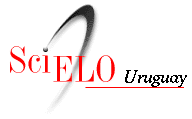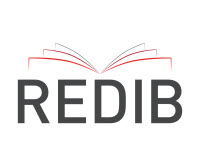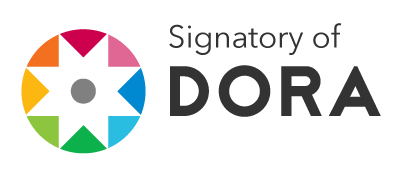Dilemas y toma de decisiones éticas en las organizaciones del conocimiento
Resumen
Los bibliotecarios atribuyen números de clasificación y términos de indización a los documentos a través de la representación del conocimiento y los sistemas de organización del conocimiento, tales como esquemas de clasificación y lenguajes de indización. Cuando la representación no se realiza de manera confiable, pueden ocurrir censura, omisión o mala representación de la información. Los bibliotecarios deben lidiar con valores éticos, así como con fronteras culturales y lingüísticas, y enfrentarán dilemas que requieren una toma de decisiones éticas. Una vez que los bibliotecarios se dan cuenta de que los problemas éticos no resueltos pueden ser perjudiciales para su comunidad de usuarios, deben actuar con respeto. Basado en informes de literatura internacional especializada, este artículo propone una discusión sobre las formas en que las herramientas de organización del conocimiento pueden presentar dilemas éticos para los bibliotecarios. Al abordar el tema desde una perspectiva exploratoria, bibliográfica y cualitativa, este estudio tiene como objetivo proporcionar elementos para la discusión tanto en cursos relacionados con la organización del conocimiento como en otras áreas preocupadas por cuestiones éticas a través de un enfoque interdisciplinario.
Descargas
Citas
Adler, M. and Tennis, J. T. (2013). Toward a taxonomy of harm in knowledge organization systems. Knowledge Organization (40), pp. 266-72.
Barité, M. (2001). Organización del conocimiento: un nuevo marco teórico-conceptual en Bibliotecología y Documentación. In Carrara, K. (Ed), Educação, universidade e pesquisa (pp. 35-60). Marília: UNESP.
Beghtol, C. (2005). Ethical decision-making for knowledge representation and organization systems for global use. Journal of the American Society for Information Science and Technology (56), pp. 903-12.
Budd, J. (2001). Knowledge and knowing in Library and Information Science: A philosophical framework. Lanham: The Scarecrow Press.
Budd, J. (2004). Academic libraries and knowledge: a social epistemology network. The Journal of Academic Librarianship (30), pp. 361-67.
Budd, J. (2006). Toward a practical and normative ethics for librarianship. The Library Quarterly (76), pp. 251-69.
Drabinski, E. (2013). Queering the catalog: queer theory and the politics of correction. Library Quarterly (83), pp. 94-111.
Fina, M. (1993). The role of subject headings in access to information: the experience of one speaking-patron. Cataloging & Classification Quarterly (17), pp. 267-74.
Fox, M. J. and Reece, A. (2012). Which ethics? Whose morality?: An analysis of ethical standards for information organization. Knowledge Organization (39), pp. 377-83.
Fox, M. J., Martínez-Ávila, D., and Milani, S. O. (2017). A Interseccionalidade e o Respeito às Pessoas na Organização do Conhecimento. In Alves, Marcos A., Gracio, Maria Cláudia C., and Martínez-Ávila, Daniel. Informação, conhecimento e modelos (pp. 289-53). Campinas: UNICAMP.
Froehlich, T. (2011). 10 Questions: Tom Froehlich. Information Outlook (15). Interview granted to Stuart Hales.
Hjørland, B. (2017). Domain Analysis. Knowledge Organization (44), pp. 436-64. Also available in ISKO Encyclopedia of Knowledge Organization, Retrieved from www.isko.org/cyclo/domain_analysis#2.0
Jacobs, C. (2007). Ethical places, ethical spaces: stopping to listen. The indexer (25), pp. 161-66.
Mai, J.-E. (2010). Classification in a social world: bias and trust. Journal of Documentation (66), pp. 627-42.
Mai, J.-E. (2013). Ethics, values and morality in contemporary library classifications. Knowledge Organization (40), pp. 242-53.
Martínez-Ávila, D., Semidão, R., and Ferreira, M. (2016). Methodological aspects of critical theories in knowledge organization. Knowledge Organization (43), pp. 118-25.
McQueen, K. (2015). Ethical issues of knowledge organization in designing a metadata schema for the Leo Kottke Archives. Knowledge Organization (42), pp. 332-38.
Milani, S. O., Guimarães, J. A. C., and Olson, H. A. (2014). Bias in subject representation: convergences and divergences in the international literature. In Babik, Wiesław (Ed), Knowledge Organization in the 21st Century: Between Historical Patterns and Future Prospects (pp. 335-42). Knowledge Organization 14. Würzburg: Ergon.
Oxford English Dictionary Online (2014). Oxford: Oxford University Press.
Olson, H. A. (2001). Patriarchal structures of subject access and subversive techniques for change. Canadian Journal for Information and Library Science (26), pp. 1-29.
Olson, H. A. (2002). The power to name: locating the limits of subject representation in libraries. Dordrecht: Kluwer Academic Publisher.
Tennis, J. T. (2008). Epistemology, theory, and methodology in knowledge organization: toward a classification, metatheory, and research framework. Knowledge Organization (35), pp. 102-12.
Derechos de autor 2025 Suellen Oliveira Milani

Esta obra está bajo licencia internacional Creative Commons Reconocimiento 4.0.







.jpg)




















